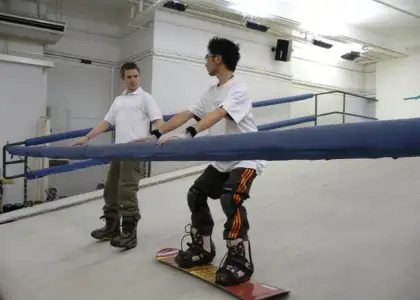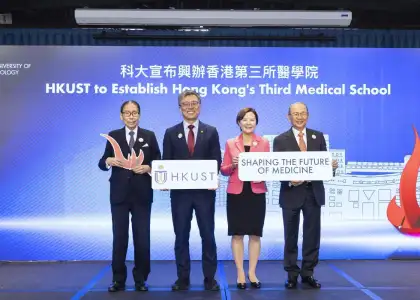Henry Tse Continues to Fight for Equality After Receiving New Male HKID
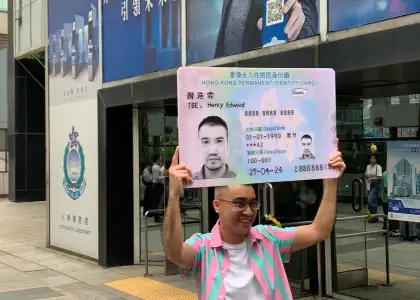
If you’re updated on the news, you’ll most likely have come across Henry Tse. He is the Hong Kong transgender activist who, quite literally, fought for his rights. In 2017, he challenged the Hong Kong government, launching a legal bid to amend the requirement that only those who completed full sex reassignment surgery could apply to change the gender marker on their Hong Kong ID (HKID) card. Rightfully, he won – and hoped the quotidian humiliations he had faced with a female ID would finally be resolved.
Yet, the road to winning the war had been ridden with numerous battles. In Henry’s experience, it was also a long one, spanning seven years of court battles and tenacious advocacy outside the court.
“After losing in the first two rounds, I could not stop myself from wondering: ‘How can I live my life in Hong Kong if I lose my case?’ The last thing I wanted is to become a burden to Hong Kong’s trans community,” he shared. “And it was difficult for me to find the help I needed. The opposition, attacks, and disinformation from local parties have been non-stop for the past seven years.”

Ultimately, this is what led Henry to found the Transgender Equality Hong Kong (TEHK), a local NGO that campaigns on behalf of trans rights and issues.
“It was a lot of hard work, but I needed that safe space and protection for myself,” he shared. “Fortunately, a project TEHK created garnered the attention of major media channels during that critical period when the final decision was being made.”
Much like other transgender men and women, Henry had decided not to undergo the precarious full-sex reassignment surgery. After starting his medical transition under the UK public healthcare system – which involved hormone replacement therapy and top surgery – Henry had felt the alleviation of his gender dysphoria. That was enough for him.
“I didn’t feel the need for further surgical procedures. Besides, genital reconstruction is highly invasive and carries high complication rates,” he explained.

In fact, his experience in the UK is in stark contrast to the protracted legal battles he faced in Hong Kong. “Changing my British passport was quite quick and straightforward. Once I submitted the documents, I received my new male passport in about a week. And all this was done before I had any surgery and hormone replacement therapy,” he recounted.
In Hong Kong, it took seven years and two lawsuits before he finally received his male HKID on April 29, 2024. This was on top of having to comply with a list of “burdensome medical and administrative requirements.” He had also been intimidated by two tall male staff upon entering the Immigration Tower to collect his application and ID.
Even after winning his lawsuit at Hong Kong’s top court in 2023, the Hong Kong government continued to refuse to give Henry a male ID. “They didn’t give us a timeline as to when the new policy would take effect. They even told me to withdraw my legal proceedings and invited me for a ‘Non-Prejudice’ meeting for that reason,” Henry recounted.
Yet, once he’d filed another lawsuit in March 2024, the government suddenly announced the revised policy in two weeks. “This is a prime example of how negative the state’s attitude is when it comes to trans equality and legal compliance,” he noted.
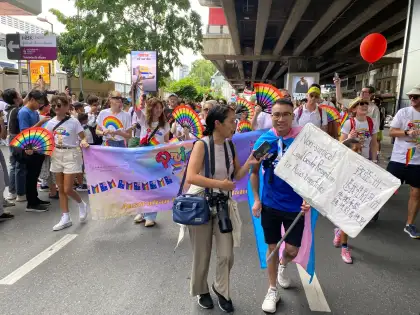
In fact, Henry has learned that lack of legal protection for transpeople has less to do with the opinion of the general public than it does with the simple reluctance of the state. Fortunately, Henry has found support in a variety of channels, including those he’s met abroad.
“Although things can be challenging or toxic in your surroundings, there are good people out there who give me hope,” he said. “My advice to those struggling is to try to find these people, learn from them, and be each other’s support.”
Henry, who’s recently spent time in Thailand – traveling abroad for the first time with his male HKID to witness the historic moment of same-sex marriage legalization – names the open Thai community as one of those that continues to inspire him.
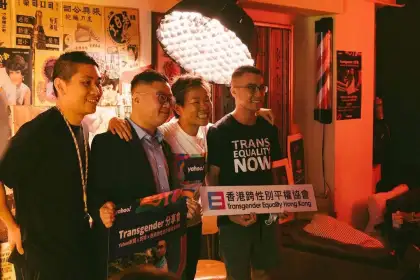
Despite Henry’s good news – and his new male ID – the activist’s mission has yet to come to a close. He continues defending equality and aims to root out the prejudice that leads to its demise.
“The new policy, while complying with the 2023 CFA court order at a minimum level and resolving many burning issues for the local trans community, still contains requirements that concern us – for example, the random blood test requirement is potentially discriminatory,” he commented. “There are also uncertainties as to how the exemption clause would be applied. As such, I am continuously following that up with my legal team and other stakeholders, for the sake of mitigating the human rights issues under the revised policy.”
Get the latest curated content with The Beat Asia's newsletters. Sign up now for a weekly dose of the best stories, events, and deals delivered straight to your inbox. Don't miss out! Click here to subscribe.




























